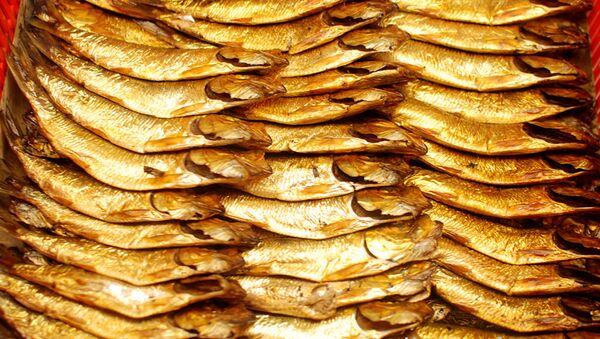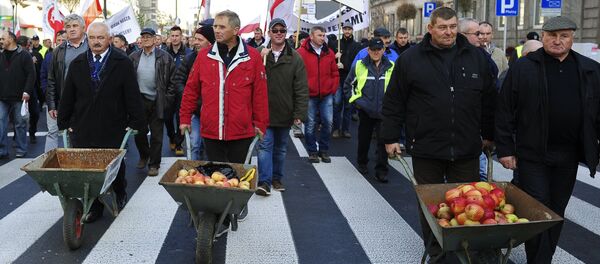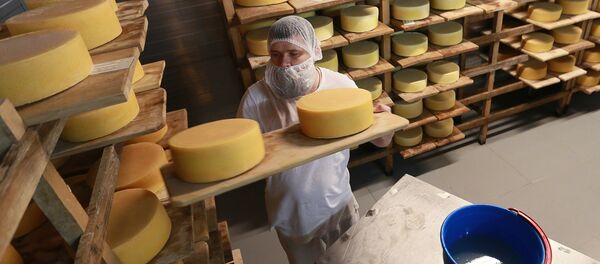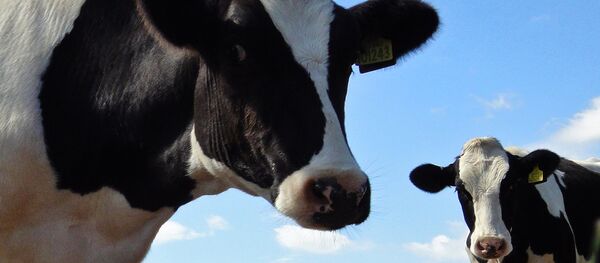On August 6, 2014, Russian President Vladimir Putin signed a decree "On the use of specific economic measures to ensure the security of the Russian Federation," mandating an effective embargo on most food products from countries that had introduced sanctions against Russia earlier that year. The counter-sanctions included everything from meat and dairy, to fish, vegetables, fruits, and many processed goods, and were directed against Europe, the US, Canada, and Australia.
Unfortunately, recently published figures have confirmed that Russia's neighbors in the Baltic region haven't been so lucky.
In Latvia, compiling the losses from agricultural sanctions, the local news portal Delfi.lv recently reported that the dairy sector has been hit hardest, with Latvian dairy farmers losing over €104 million, accelerating losses meaning that this figure may rise to €233.5 million by 2017. In its analysis, Delfi noted that "the financial reports of dairy farms have shown their turnover declining by a quarter. This applies to cooperatives and to large milk processors alike."
Lithuania's dairy industry is even worse off, with European Commission President Jean-Claude Juncker recently admitting that Vilnius has been hit by the sanctions harder than any other country in the EU, and Prime Minister Algirdas Butkevicius warning that the dairy industry was on the brink of collapse.
The Baltic states' fisheries industry is doing little better. Gamma-A, Latvia's largest producer of canned sprats, has reported a 34% decline in turnover. The company's management stated bluntly that the sprats sold to Russia had no market in the West, adding that they are losing hope in the search for new markets.
Meanwhile, the Russian online newspaper Svobodnaya Pressa explains that Russian fish processing companies have effectively replaced the Latvians, with the embargo stimulating domestic production in the Kaliningrad region. The Russian firms also attributed their success to the natural smoking methods used in their production. As for the Latvian companies, their products often exceeded the limits Russian regulators placed on carciogenic benzopyrene, leading to imports being regularly suspended even before the 2014 crisis.
At the same time, Svobodnaya Pressa observed an interesting phenomenon: despite the losses, the political elites in all three countries have so far refused to change course, even despite the demands of their farmers. "On the contrary, they have demanded an extension and strengthening of the sanctions against Russia."
This, the paper noted, puts them at odds with officials in other countries across Europe, from the French National Assembly to Italian regional assemblies, the Hungarian Foreign Ministry and the Czech President, each of whom have proposed lifting anti-Russian sanctions, or at least stepping out against their automatic extension.





